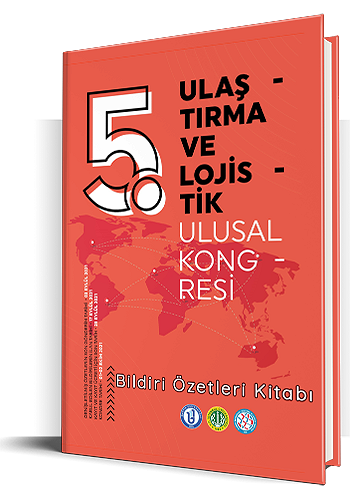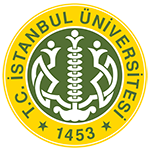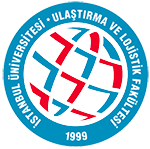
Ulaştırma ve Lojistik Kongreleri
- Türkçe
- Özet
- 2021
Enerji Lojistiği Açısından Yeni İpek Yolu Projesinin Analizi: Türkiye‘ye Sunduğu Fırsatlar ve Maliyetler
İlhan Kanuşağı
Öğr. Gör., Hasan Kalyoncu Üniversitesi, Gaziantep, Türkiye
Zehra Vildan Serin
Öğr. Gör., Hasan Kalyoncu Üniversitesi, Gaziantep, Türkiye
Son yıllarda teknolojinin ve dijitalleşmenin akıl almaz hızda gelişmesi ülkeler arası etkileşimi ve küreselleşmeyi hat safhalara çıkarmıştır. Bu durum günümüzün küresel enerji sektörünü, artan teknik ve coğrafi zorluklarla birlikte değişen ve rekabetçi bir ortamla karşı karşıya bırakmıştır. Bugün ülkeler üretim yapabilmek ve teknolojik alt yapılarını inşa edebilmek için yüksek miktarda enerjiye ihtiyaç duymaktadır. Ancak ihtiyaç duyulan enerjiye her ülke sahip olmadığından ülkeler için dışa bağımlılık söz konusu olmaktadır. Bu durum sadece gelişmemiş ülkeler için değil Çin gibi gelişmiş ülkeler ve Türkiye gibi gelişmekte olan ülkeler için de geçerlidir. Ülkeler bu bağımlılığı azaltabilmek için çeşitli arayışlar içerisine girmekte ve birçok tedbir almaktadır. Türkiye için, bu arayışlardan en dikkat çekeni Çin’in ‘Bir Kuşak, Bir Yol (One Belt, One Road - OBOR) projesidir. Bir Kuşak, Bir Yol projesi Asya, Avrupa, Orta Doğu ve kısmen Afrika’yı da kapsayan, ulaşım ağları, telekomünikasyon ve enerji ağları ile uluslararası entegrasyonun hedeflendiği bir projedir. Bu proje, dünya nüfusunun % 65’ini, dünya GSYH’nın % 42’sini, bilinen enerji rezervlerinin % 75’ini, dünya kara yüzölçümünün % 40’ını kapsamaktadır. Türkiye, jeopolitik konumu sayesinde İpek Yolu Ekonomik Kuşağı’nın kara ve demiryolları hatları üzerinde yer almaktadır. Bu özellikleri Türkiye’yi projenin bir ulaşım üssü olma ve enerji hatlarının geçişinde kilit ülke durumuna getirmektedir. Türkiye’nin, coğrafi konumu itibarıyla, Avrupa Birliği’nin enerji politikaları anlamında önemli bir yeri vardır. Türkiye Orta Doğu’ya, Karadeniz’e, Körfez ülkelerine, Avrupa’ ya yakınlığı nedeniyle Çin için önemli bir konumdadır. Buna ek olarak Türkiye, enerji üretimi ve ihracatı yapan birçok ülkeye komşu olması ve söz konusu enerji ihracatları noktasında transit ülke statüsünde bulunması nedeniyle önemli bir konuma sahip olma niteliğini arttırmaktadır. Tüm bunlar göz önüne alındığında; Bir Kuşak, Bir Yol kapsamındaki tüm ülkeler ayrı ayrı proje için önemli olsa da Türkiye oldukça stratejik konumdadır. Türkiye, Avrupa ve Asya ticaret yollarının merkezinde yer almakta ve bu doğrultuda Marmaray, Yavuz Sultan Selim Köprüsü, Avrasya Tüneli, 1915 Çanakkale Köprüsü ve 3. Havalimanı Projesi gibi büyük altyapı projelerini hayata geçirmektedir. Çin’in Türkiye’de 2005 ve 2018 yılları arasında yapmış olduğu tüm yatırımların %63,1’ini sadece enerji sektörünün oluşturması Bir Kuşak, Bir Yol projesinin enerji ayağında Çin’in Türkiye’ye olan ihtiyacını göstermektedir. Projenin Türkiye ayağı en önemli orta koridor kısmını oluşturmakta ve özellikle Avrupa bağlantı noktası kısmında önem kazanmaktadır. Öte yandan proje, Türkiye'nin Güney Asya pazarına daha kolay, hızlı ve düşük maliyetle ulaşmasını sağlayacaktır. Türkiye’nin enerjide belli başlı ülkelere aşırı bağımlı olmasının yarattığı riskler yeni enerji koridoru sayesinde kaynak ülke çeşitlendirmesinin artırılmasıyla minimize edilebilecektir. Ayrıca, enerji arzında yeni ülkelerin devreye girmesiyle birlikte artacak olan rekabet dolayısıyla enerji maliyetlerinde de bir düşüş yaşanması olasıdır. Buna ek olarak, taşıma maliyetlerinde önemli azalmalar meydana gelmesi sebebiyle Türkiye’de hammadde ve yarı mamuller ile ithal edilen birçok ürünün arz ve talebinde refah artışı meydana gelecektir. Bu çalışmanın temel amacı, Yeni İpek Yol Projesi’nin Türkiye’nin enerji sektörüne olan yansımalarını analiz ederek Yeni İpek Yol Projesi’nin Türkiye’ye sunduğu fırsatları belirlemektir. Ayrıca, bu çalışma ile beraber Türkiye enerji sektöründeki dışa bağımlılığın azaltılabilmesi ve enerji tedarikinin sürekliliğinin sağlanabilmesi için neler yapılabileceğinin irdelenmesi hedeflenmektedir. Bu çalışmada Türkiye’den geçen, Güney Gaz Koridoru (GGK), Güney Kafkasya Boru Hattı (SCP), Trans Anadolu Doğal Gaz Boru Hattı (TANAP) ve Trans Adriyatik Boru Hattı (TAP) enerji lojistiği açısından değerlendirilerek, enerji güvenliği, sürdürülebilirlik ve minimum maliyet açısından SWOT Analiz yöntemi ile analiz edilecektir.
Anahtar Kelimeler: Türkiye, Enerji Güvenliği, Yeni İpek Yol Projesi, Bir Kuşak Bir Yol Projesi, Enerji Koridoru
Analysis of the New Silk Road Project In Terms of Energy Logistics: Opportunities and Costs Offered to Turkey
The rapid development of technology and digitalization in recent years has brought international interaction and globalization to the next level. This situation has confronted today's global energy sector, with a changing and competitive environment with increasing technical and geographical challenges. Today, countries need a high amount of energy to be able to produce and build their technological infrastructure. However, since not every country has the energy needed, there is a foreign dependency for the countries. This is true not only for underdeveloped countries but also for developed countries such as China and developing countries such as Turkey. Countries are in search of various quests and take many measures in order. For Turkey, the most striking of these pursuits is China's 'One Belt, One Road - OBOR' project. The One Belt, One Road (OBOR) is a project aimed at international integration with transportation networks, telecommunication, and energy networks, covering Asia, Europe, the Middle East, and partially Africa. OBOR covers 65% of the world's population, 42% of the world's GDP, 75% of the known energy reserves, and 40% of the world's land area. Turkey is located on the highway and railway lines of the Silk Road Economic Belt, thanks to its geopolitical location. These features make Turkey a transportation base of the project and a key country in the passage of energy lines. Turkey, due to its geographical location, has an important place in the energy policies of the European Union. Turkey is in an important position for China due to its proximity to the Middle East, Black Sea, Gulf countries and Europe. In addition, Turkey increases its status as an important location because it is neighbourhood to many countries that produce and export energy and has the status of a transit country in terms of energy exports. Considering all these, although all the countries within the scope of the Belt project are important for the project individually, Turkey has a very strategic position. Turkey is located at the center of European and Asian trade routes and in this direction, it implements major infrastructure projects such as Marmaray, Yavuz Sultan Selim Bridge, Eurasia Tunnel, 1915 Çanakkale Bridge and 3rd Airport Project. The fact that only the energy sector constitutes 63.1% of all investments made by China in Turkey between 2005 and 2018 shows the need of China for Turkey in the energy part of the Belt and Road project. The Turkish leg of the project constitutes the most significant middle corridor and gains importance, especially at the European connection point. On the other hand, the project will enable Turkey to reach the South Asian market more easily, quickly, and at a low cost. In addition, it is possible to experience a decrease in energy costs due to the competition that will increase with the introduction of new countries in the energy supply. In addition, due to significant reductions in transportation costs, there will be an increase in welfare in the supply and demand of raw materials, semi-finished products and many imported products in Turkey. The main purpose of this study is to determine the opportunities offered by the New Silk Road Project to Turkey by analyzing the reflections of the New Silk Road Project on Turkey's energy sector. In addition, with this study, it is aimed to examine what can be done to reduce foreign dependency in the Turkish energy sector and to ensure the continuity of energy supply. In this study, the Southern Gas Corridor (GGK), South Caucasus Pipeline (SCP), Trans-Anatolian Natural Gas Pipeline (TANAP) and Trans Adriatic Pipeline (TAP) passing through Turkey were evaluated in terms of energy logistics, and energy security, sustainability and minimum will be analyzed with the SWOT Analysis method in terms of cost.Keywords: New Silk Road Project, Turkey, Energy Security, Energy Corridor, One Belt One Road Project


Bu çalışma, kullanan kişilere orjinal çalışmadan alıntı yaptıkları sürece, çalışmayı dağıtma, değiştirme ve üzerine çalışma hakkı tanıyan Attribution 4.0 International (CC BY 4.0) lisansı ile lisanslanmıştır.
İletişim
İstanbul Üniversitesi Ulaştırma ve Lojistik Fakültesi
İ.Ü. Avcılar Kampüsü 34320 Avcılar/İstanbul
ulk@istanbul.edu.tr
+ 90 (212) 440 00 00 - 19200


